
What do staff shortages mean for patients?
RCN Wales members explain.
How about people who depend on nursing care in the community?
Are there particular effects on children, older people, people with learning disabilities?
And what about on nursing staff themselves?
RCN members at all stages in their nursing careers explain why safe staffing levels matter, and why shortages affect everyone.
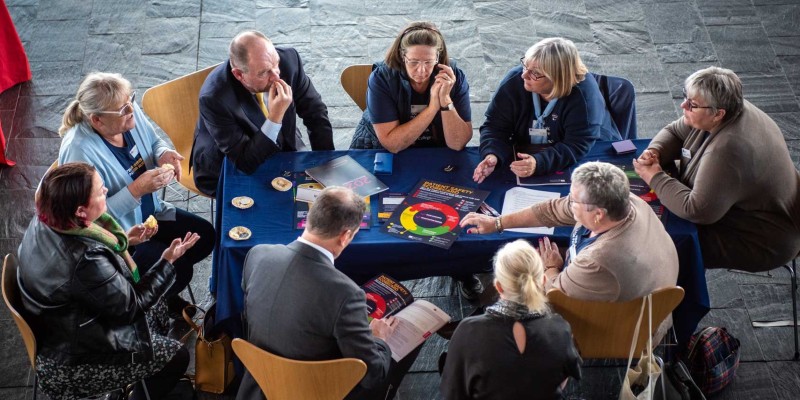
George, Intensive Care Nurse
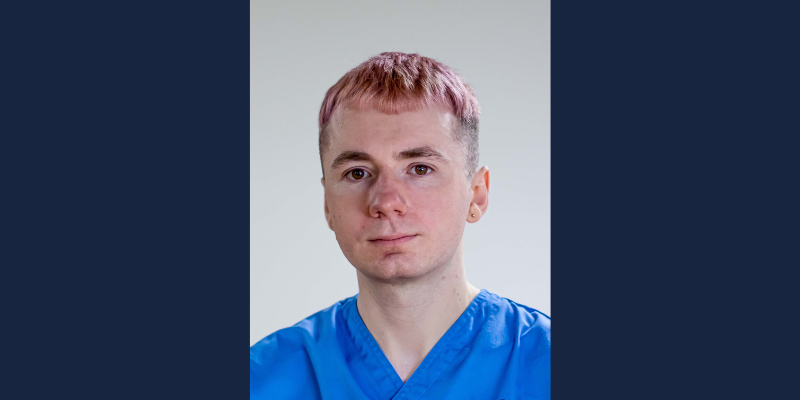
George, 22, works in intensive care in Wales. He cares for critically ill patients who are often experiencing multiple organ failure and need continual monitoring and support.
The workload of just one very unstable critically ill patient can take up a whole shift for me.
Keeping on top of their urgent medical needs and ensuring their infusions and machines are all working appropriately means we have a guidance of one “level 3 patient” per nurse. Level 3 is the sickest a patient can be.
The low staffing issues that have been made worse by the fallout of the pandemic mean we are now doubling up on the sickest patients. That 1-1 care cannot be given.
Experienced nurses are leaving quicker than they are being replaced.
I started in November 2020 during the second wave of the pandemic. We were short staffed then but got through it together. Going through the trauma of losing so many patients and working so hard in these awful conditions brought us close together and I made close friends with a lot of the team.
This year a lot of those colleagues have left due to the stresses of staffing levels and the pandemic. I work with agency staff and new starters that I don’t always know. It is damaging for morale not to have a support network at work.
The majority of NHS staff are one bad shift away from throwing the towel in.
As great as new recruits are, they also need training. It is labour intensive to have a lot of new starters. We need to work on retention of the experienced nurses.
I look around on my shifts and I can sometimes be the most experienced staff member in my zone and I’ve only been working for a year. That would not have happened a few years ago.
The pressure and stress this causes me is different from the normal stresses of nursing seriously ill patients.
I feel like I am fighting fires. Good nursing days are rare at this point. I can’t provide the care I want to and although it feels like asking for full staffing is the bare minimum it’s actually my dream best case scenario right now.
Everyone is so exhausted. Our ward sisters and managers are supportive and offer to move us to low stress areas on really bad days if we need it and we have access to a psychologist, but the answer is more staff to reduce the pressure in the first place.
I want the government to hear first-hand from staff on the front line what is really happening.
Nurses are not going to be able to sustain this workload.
We have to speak out and make a difference.
Alison, Health Care Support Worker
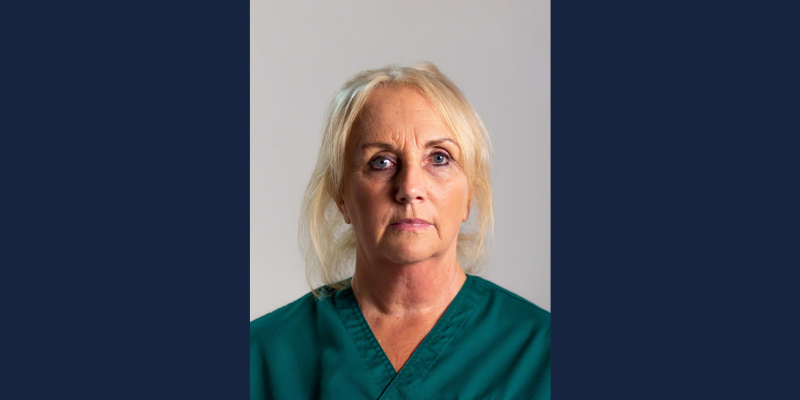
Alison, 64, is a health care support worker, based in Wales. She has been in the role for 17 years. Her job role involves cleaning, patient care, supporting the staff nurse by identifying issues early, taking observations from patients and working as a team on the ward.
The health care support worker role has changed massively since I started working in 2004.
The pandemic changed our workload and how we cared for people, in that we were having to isolate patients with Covid-19 symptoms who may have dementia or no capacity to understand why they needed to stay in a room alone. Supporting them was time consuming but necessary.
There was a lot of uncertainty and we had very little PPE – but morale was high at first. We were all doing absolutely everything we could and putting in more hours to cover any gaps in staffing levels.
But the aftermath of pushing ourselves like that means the staffing situation is now worse.
Nurses are washed out and staff are leaving quicker than they can be replaced.
We should have eight staff – four trained nurses and four support workers – on shift to care for 32 patients on the ward.
Now due to staffing problems there are more patients per person almost every shift. I’ve even had 17 patients to look after on a shift .
I’ve never known so many people to leave the job. It’s because they are put upon and they feel there is no support and no one is coming to help.
They are worried they will make a mistake that will cost them their job because of the working conditions.
So, they leave while they are still proud of the work they have done. Without the right support and the staff to make it safe for everyone, good nurses would rather leave.
Going forward we need to improve management of the NHS and give incentives for more young people to work in healthcare.
The public and our patients have a lot of sympathy, especially after the pandemic when we were so appreciated with the clapping and messages of thanks.
Now we need systematic change so that nurses can get back to giving the standard of care they used to.
At the moment we can go home completely and utterly drained. But when we’ve got support and we are managed well, the satisfaction of seeing a patient’s journey and seeing them get well or make improvements is huge.
Being able to contribute to people’s wellbeing and health is very special and motivating to me and everyone working in healthcare.
We just want to be able to do our jobs well and with the right team this should be possible every shift.
If we do not address staffing levels and do something now, we will reach a critical point.
Mitchell, Mental Health Nurse
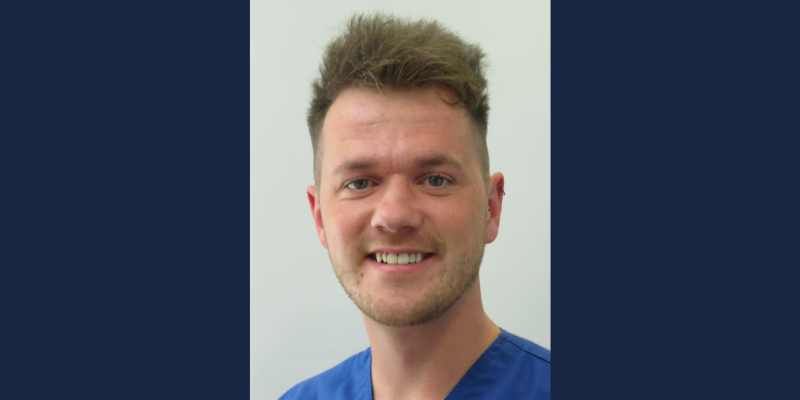
Mitchell is a mental health nurse in South Wales with a special interest in learning disabilities. He qualified in 2019 and, until recently, supported people with learning disabilities experiencing a mental health crisis.
I’ve always been interested in learning disability nursing. I’d worked as a support worker in learning disability settings and the number of people I supported with both learning disabilities and diagnoses of mental illnesses was very high.
I felt if I studied mental health nursing, I’d be able to support those people with learning disabilities with their mental illness.
My older brother has Down’s syndrome, so I grew up with a person with a learning disability in my family and we’re very close.
Since I became a mental health nurse, I’ve been able to support my colleagues with the mental health part of a person’s diagnosis as well as the learning disability.
When I worked for the NHS, I was a staff nurse on an assessment and treatment unit. We had eight beds for people with learning disabilities who were experiencing a mental health crisis.
I was the only mental health nurse employed in my unit. It’s quite unusual.
We would start planning for discharge with the community teams as soon as they were admitted. In an ideal world, that’s what would happen. In practice, while they were with us, people would sometimes be served notice by their landlords who felt unable to meet their needs. Then it becomes a social issue as we try to find them new homes.
Staffing levels have a massive impact. The safe staffing level for my unit was two registered nurses by day, one by night, and health care support workers dependent on how many patients we had.
Some of these individuals don’t have a voice like you or me. They can’t always express their needs. Being short-staffed was a regular occurrence and had a massive effect on their wellbeing.
The risk was high: when we’d admit someone, the psychiatrist might decide they need 1:1 nursing care, where a nurse is assigned to them and only them. Sometimes I wouldn’t have the staff to facilitate that. At one point at the height of Covid, I did seven nightshifts in a row just to cover the unit because we had so few staff available.
But even before Covid, staffing was a massive issue. It has a huge effect on patient safety.
It’s not right. People are admitted to hospital as a safe place. But if we haven’t got the staff, I can’t put my hand on my heart and say it is a safe place.
Being admitted to hospital can be scary, but I have the insight to understand why I’m there, and the capacity to agree to treatment. Some people with learning disabilities don’t have that – they don’t know where they are, they’ve just been taken from their home to a strange place full of random people.
They’re scared and that can lead to episodes of challenging or self-harming behaviour. But if we haven’t got the staff, how can we support them safely?
Linda, Mental Health Nurse
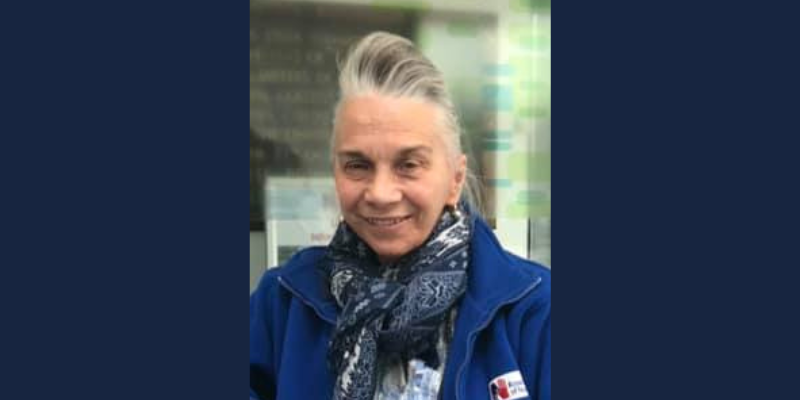
Linda is a mental health nurse based in Wales. In her role she administers medications and cares for patients with mental health challenges and facilitates their discharges from hospital.
I only started nursing in my fifties. I retired from one career and started another.
I wanted to help people and nowadays I think you have to be quite a determined person to do it on the wards.
But even in a high pressure, low staff environment there is still plenty of opportunity to be kind to our vulnerable patients and do your best for everyone.
When I go onto the ward I think of every person as someone’s child or partner or friend and I treat them with kindness.
Since the pandemic you never know what the day is going to throw at you and who you are going to be working with.
And when you are a staff member down you have to ring around to find cover.
That amazes me. That as well as looking after the patients there is all this admin to find staff.
It would be helpful and beneficial if there was a reliable 24/7 central staffing line where you can ring and let them know you are short staffed.
There are too many managers in their offices on our wards and not enough matrons who would roll their sleeves up to help when we are short.
I’m a resilient person but everyone has their breaking point.
So many colleagues go off with stress due to the shortages and that causes more shortages. You can see how the cycle goes.
All I do is try and get on with it and be the best I can be on a daily basis.
As a nurse you are in a position of power and responsibility, and you don’t want to abuse that trust from your patients.
The NHS is a monster now and people say it is ready to burst. And when things do go wrong there is very little accountability from above. There is a blame culture that leaves nurses in a lot of trouble when mistakes are made because of staffing pressures.
Recruitment feels uncoordinated at the moment. New starters need training, and on the wards, it is hard to give that time. Some nurses arrive and they are naturals - clever and kind, caring people - but every new starter should arrive prepared and equipped so they are ready to help and support us.
We must all be confident to voice our opinion and stand up for what's right for patients.
Lisa, Specialist Community Public Health Nurse
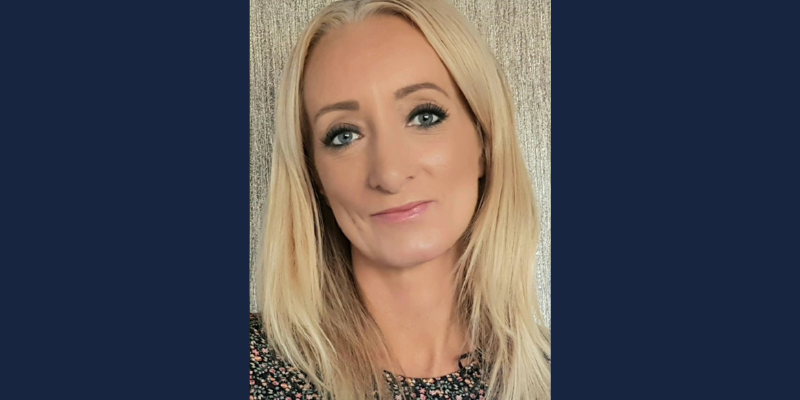
Lisa is a Specialist Community Public Health Nurse. For the last ten years, she has led a team that educates and works with children and young people to empower them to avoid the harms associated with substance use. She also acted as the link between Cardiff and Vale Youth Health Board and the team working on extending safe staffing legislation to children’s wards.
I’ve been a nurse since 2000. My first ever job was in a nursing home, looking after older women. I was sixteen years old at the time and while the hours were terrible, it was an incredible experience and it set my heart on a career in looking after others.
Since then, I’ve also been a midwife, and I’ve worked in medicine, sexual health, HIV nursing and school nursing. There’s not been a single day I’ve looked back.
Now I support children and young people with emotional needs. I specialise in the needs of trans and non-binary children and young people, who often find there’s a gap in service provision for them.
I also educate young people about their health, and I support other nurses.
Suicide is still the biggest killer of young people and school nurses are often the first person to hear about suicidal intent.
That can itself be incredibly traumatic for school nurses. But without them there to listen sensitively and confidentially, there could be no one else to hear the child until the situation has worsened.
School nurses are mainly concerned with preventing ill health by detecting children’s needs early. It can be a rewarding job with a lifelong impact on people’s health. They’re highly skilled, experienced and qualified nurses with an additional Specialist Community Public Health Nurse BSc or MSc.
Yet they’re exhausted, as many nurses are. While nursing in general has a recruitment crisis, there’s also a shortage within school nursing. It means many haven’t been able to do what they went into school nursing to do: use the skills their advanced education gave them to offer preventative care.
Colleagues I know have left. Who can blame them if you can earn more money working somewhere else for less responsibility?
Extending Section 25B would make a massive difference in community nursing for children and young people. Most children come across their school nurse at a stage where early intervention could make a real difference. With enough resources and staff, some children might never need a referral to mental health services, or to attend A&E for self-harm.
But if nothing changes, we’re just going to lose more school nurses and all those potential benefits will go to waste.
We need more of that support for our younger generations to lead healthier lives, rather than trying to solve health problems after they’ve already manifested.
Jeremy, Mental Health Nurse
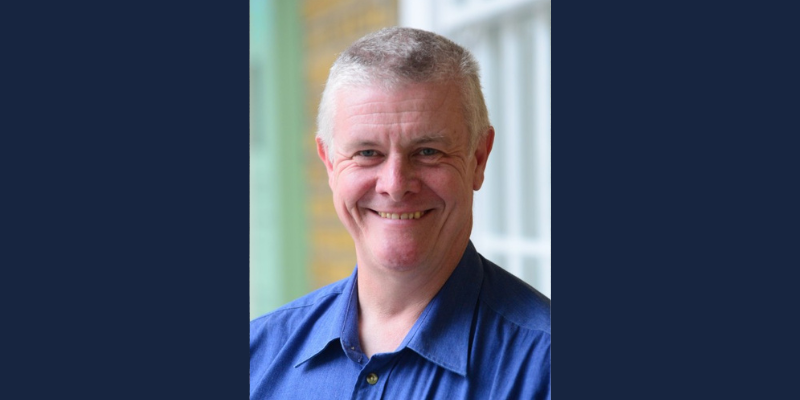
Jeremy, mental health nurse
Jeremy has been a nurse since 1990. He works on a ward for older adults with functional mental health problems such as depression, schizophrenia and anxiety disorders.
Patients in our care often have problems with both their physical and mental health. Issues like pain management, disability, injury and continence form an extra layer on top of mental health.
It can be the most incredible job in the world. You can make a real difference in the lives of people who might be very scared, very low, and unable to see a future for themselves or a way forward. You can find yourself easing someone’s pain or making them smile at a moment of crisis, or even giving someone a good death free of pain and with dignity.
But it can also be incredibly challenging work.
Can you believe 2020 was the Year of the Nurse? It was also the year that the majority of the nursing working population reached 55 and could consider retirement. A lot of people had a moment of clarity about their jobs and what they were doing.
Covid-19 meant that potentially we and our families were at risk. It made a lot of people reconsider their options. A lot of us stayed, but many didn’t.
The stress created by low staffing levels is partly why I’m now off sick.
Our staff levels are regularly low. Recently, I haven’t worked a single shift without a bank nurse or support worker alongside us. It can mean working with a stranger who isn’t familiar with the ward layout, or someone with no experience of working in that area.
Team cohesion is difficult when the people on the team are constantly changing, although people always step up to the challenge.
Management are constantly under pressure to meet their budget as well as provide the right level of care. So there’s constant pressure to make things work.
I’ve watched other nursing staff burn out or leave. They’d work extra hours unpaid because they thought they were doing the right thing, or that they’d make the time up – and they never would.
Extending Section 25B would mean we’d have enough regular staff that we didn’t rely on agency or bank staff. We could have a safe, effective and consistent team.
And that matters because our patients would have a safe, effective and consistent team.
We need a shift in how nursing and the caring professions are perceived and valued by both the Welsh Government and the public.
Think about nursing as a global profession. We’re the one job on Earth that’s there for you from beginning to end. It’s a thing that’s not recognised, and that’s sad.
It's a privilege, but it’s not a charitable thing. We can’t do it for nothing.
Karen, Advanced Nurse Practitioner
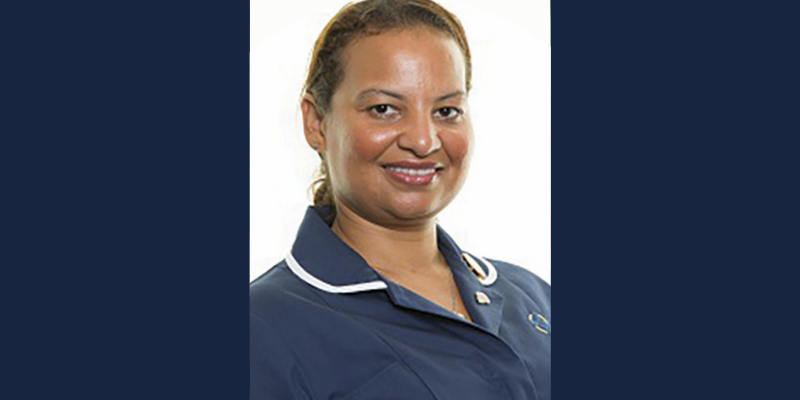
Karen is a community nurse in North Wales. She has worked in surgery, in district nursing and as a matron in a community hospital. She now works across both community and hospital-based care as an Advanced Nurse Practitioner, supporting people to receive care at home which might normally require hospital admission.
My mum didn’t think I was going to be a nurse because I was scared of the dark – she just couldn’t see me walking around the dark hospital corridors! But she also worked in care, in nursing homes, and she was a foster carer.
My grandmother was a nurse and my uncle was a doctor in Zimbabwe. When I was eight, we looked after my grandfather at home. My nan nursed him. We were young children but she got us involved.
Later, I used to often go to work with her where she was a matron. I’d see them looking after very sick, elderly people; we used to play chess with them while they were sitting by their beds.
I always wanted to be in a job where I was helping people or looking after people.
I originally wanted to specialise in surgical nursing and got a job straight after qualification on the ENT ward in Wrexham Maelor.
While I was there, I had the chance to work with the community teams, educating patients and their families and setting them up at home for self care. That’s where my interest in community nursing came from.
Since then, I’ve done my masters in advanced clinical practice and become an independent prescriber. I’ve been working across community and secondary care, looking at chronic disease management and patients with complex care needs.
I think everybody’s completely burnt out, and it predates Covid. Particularly in the community, morale is really low. For so many, the passion for the work they do is gone because they feel like they’re so overworked.
Every day, somebody tells me they’ve had enough. That they haven’t got any more to give. On the wards, too, they just don’t have the time to spend with patients.
Under that kind of pressure, nursing can become very task-oriented. There isn’t enough time for the simple things like speaking to patients and asking how they feel.
I’ve been in situations where I’ve spoken to patients who’ve been in hospital for two or three weeks and nobody’s initiated the conversation about what they need to get back home. It’s often simple things, but nobody’s had the time to do it.
A lot of these people are frail and elderly. They want to get the most out of every opportunity and they’re losing time for that by being in hospital unnecessarily.
It’s a challenging and difficult time for everyone – the medical staff as well. Everyone’s demoralised about the job we’re doing because it’s so difficult.
I don’t think I’ve lost my passion for nursing, but I’m frustrated by the things that are happening. I see nurses working so hard and they get so little recognition for the work they do.
I think the main thing extending section 25B would mean is we could give patients the care they deserve. People need to listen to the community nurses who are doing the work. I have colleagues who see as many as 19 patients in a single shift. Then you have to factor in travel time, paperwork, communicating with other professionals... That doesn’t equate to quality care.
Without us, what would happen?
Resources
Check out all our campaigning resources on here!
Page last updated - 19/08/2023





